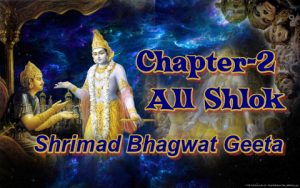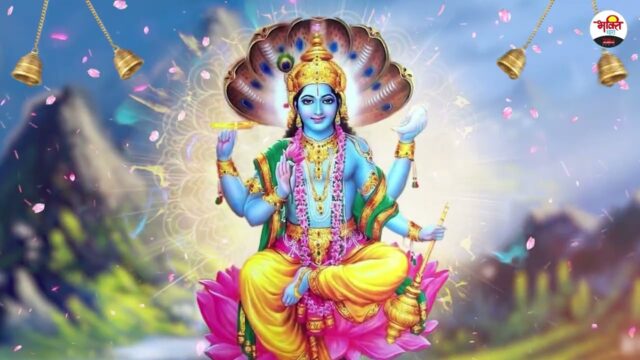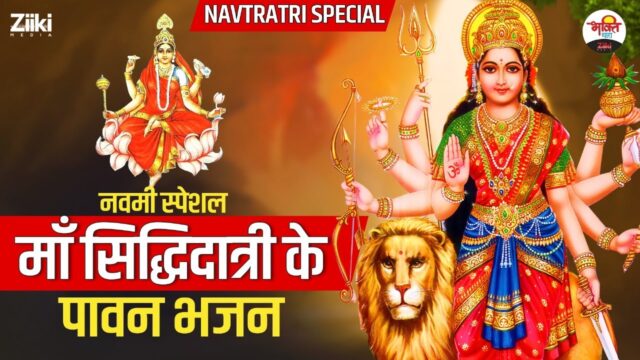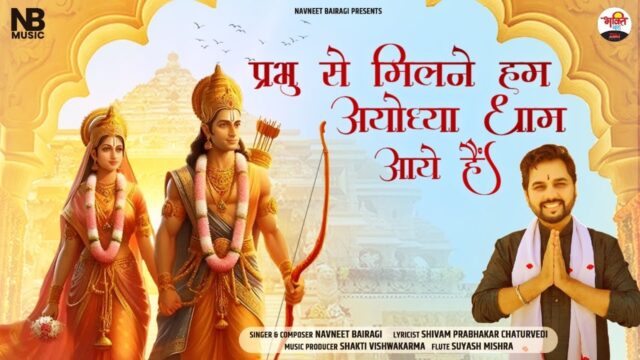 #BHAKTIGAANE #ShrimadBhagwatGeeta #GEETAUPDESH #GEETASHLOK #MAHABHARATSHLOK
#BHAKTIGAANE #ShrimadBhagwatGeeta #GEETAUPDESH #GEETASHLOK #MAHABHARATSHLOK
Lyrics Name:Shrimad Bhagwat Geeta
Album Name :Shrimad Bhagwat Geeta Mahakavya
Published Year:2017
File Size:4MB Time Duration :03:05:00
मूल श्लोकः
सञ्जय उवाच
तं तथा कृपयाऽविष्टमश्रुपूर्णाकुलेक्षणम्।
विषीदन्तमिदं वाक्यमुवाच मधुसूदनः।।2.1।।
Sanjaya then told how the Lord Shri Krishna, seeing Arjuna overwhelmed with compassion, his eyes dimmed with flowing tears and full of despondency, conso
मूल श्लोकः
श्री भगवानुवाच
कुतस्त्वा कश्मलमिदं विषमे समुपस्थितम्।
अनार्यजुष्टमस्वर्ग्यमकीर्तिकरमर्जुन।।2.2।।
The Bhagavat said O Arjuna ! At a critical moment, whence did this sinful act come to you which is practised by men of ignoble (low) birth and which is leading to the hell and is inglorious ?
“The Lord said: My beloved friend! Why yield, just on the eve of battle, to this weakness which does no credit to those who call themselves Aryans, and only brings them infamy and bars against them the gates of heaven?
मूल श्लोकः
क्लैब्यं मा स्म गमः पार्थ नैतत्त्वय्युपपद्यते।
क्षुद्रं हृदयदौर्बल्यं त्यक्त्वोत्तिष्ठ परन्तप।।2.3।।
Sri Sankaracharya did not comment on this sloka. The commentary starts from
O Arjuna! Why give way to unmanliness? O thou who art the terror of thine enemies! Shake off such shameful effeminacy, make ready to act!
मूल श्लोकः
अर्जुन उवाच
कथं भीष्ममहं संख्ये द्रोणं च मधुसूदन।
इषुभिः प्रतियोत्स्यामि पूजार्हावरिसूदन।।2.4।।
Sri Sankaracharya did not comment on this sloka. The commentary starts from 2.10.
Arjuna argued: My Lord! How can I, when the battle rages, send an arrow through Bheeshma and Drona, who should receive my reverence?
मूल श्लोकः
गुरूनहत्वा हि महानुभावान्
श्रेयो भोक्तुं भैक्ष्यमपीह लोके।
हत्वार्थकामांस्तु गुरूनिहैव
भुञ्जीय भोगान् रुधिरप्रदिग्धान्।।2.5।।
Sri Sankaracharya did not comment on this sloka. The commentary starts from 2.10.
Rather would I content myself with a beggar’s crust that kill these teachers of mine, these precious noble souls! To slay these masters who are my benefactors would be to stain the sweetness of life’s pleasures with their blood.
मूल श्लोकः
न चैतद्विद्मः कतरन्नो गरीयो
यद्वा जयेम यदि वा नो जयेयुः।
यानेव हत्वा न जिजीविषाम
स्तेऽवस्थिताः प्रमुखे धार्तराष्ट्राः।।2.6।।
Sri Sankaracharya did not comment on this sloka. The commentary starts from 2.10.
Nor can I say whether it were better that they conquer me or for me to conquer them, since would no longer care to live if I killed these sons of Dhritarashtra, now preparing for fight.
मूल श्लोकः
कार्पण्यदोषोपहतस्वभावः
पृच्छामि त्वां धर्मसंमूढचेताः।
यच्छ्रेयः स्यान्निश्िचतं ब्रूहि तन्मे
शिष्यस्तेऽहं शाधि मां त्वां प्रपन्नम्।।2.7।।
With my very nature, overpowered by the taint of pity, and with my mind, utterly confused as to the right action [at the present juncture], I ask you: Tell me definitely what would be good [to me]; I am your pupil; please teach me, who am taking refuge in You.
My heart is oppressed with pity; and my mind confused as to what my duty is. Therefore, my Lord, tell me what is best for my spiritual welfare, for I am Thy disciple. Please direct me, I pray.
मूल श्लोकः
न हि प्रपश्यामि ममापनुद्या
द्यच्छोकमुच्छोषणमिन्द्रियाणाम्।
अवाप्य भूमावसपत्नमृद्धम्
राज्यं सुराणामपि चाधिपत्यम्।।2.8।।
I do not clearly see what would drive out my grief, the scorcher of my sense-organs, even after achieving, a prosperous and unrivalled kingship in this earth and also the overlordship of the gods [in the heaven].
For should I attain the monarchy of the visible world, or over the invisible world, it would not drive away the anguish which is now paralysing my senses.”
मूल श्लोकः
सञ्जय उवाच
एवमुक्त्वा हृषीकेशं गुडाकेशः परन्तप।
न योत्स्य इति गोविन्दमुक्त्वा तूष्णीं बभूव ह।।2.9।।
Sanjaya said O scorcher of foes (O Dhrtarastra) ! Having spoken to Hrsikesa (the master of sense-organs), Govinda (Krsna) in this manner, and having declared ‘I will not fight’, Gudakesa (Arjuna), became silent !
Sanjaya continued: “Arjuna, the conqueror of all enemies, then told the Lord of All-Hearts that he would no fight, and became silent, O King!
मूल श्लोकः
तमुवाच हृषीकेशः प्रहसन्निव भारत।
सेनयोरुभयोर्मध्ये विषीदन्तमिदं वचः।।2.10।।
O descendant of Bharata (O Dhrtarastra) ! Hrsikesa, as if [he was] smiling, spoke to him who was sinking in despondency in between two armies.
Thereupon the Lord, with a gracious smile, addressed him who was so much depressed in the midst of the two armies.
मूल श्लोकः
श्री भगवानुवाच
अशोच्यानन्वशोचस्त्वं प्रज्ञावादांश्च भाषसे।
गतासूनगतासूंश्च नानुशोचन्ति पण्डिताः।।2.11।।
While lamenting for those who cannot be lamented on and those who do not reire to be lamented on, you do not talk like a wise man ! The learned do not lament for those of departed life and those of non-departed life.
Lord Shri Krishna said: Why grieve for those for whom no grief is due, and yet profess wisdom? The wise grieve neither for the dead nor the living.
मूल श्लोकः
न त्वेवाहं जातु नासं न त्वं नेमे जनाधिपाः।
न चैव न भविष्यामः सर्वे वयमतः परम्।।2.12।।
Never indeed at any time [in the past] did I not exist, nor you, nor these kings; and never shall we all not exist hereafter.
There was never a time when I was not, nor thou, nor these princes were not; there will never be a time when we shall cease to be
मूल श्लोकः
देहिनोऽस्मिन्यथा देहे कौमारं यौवनं जरा।
तथा देहान्तरप्राप्तिर्धीरस्तत्र न मुह्यति।।2.13।।
Just as the boyhood, youth and old age come to the embodied Soul in this body, in the same manner is the attaining of another body; the wise man is not deluded at that.
As the soul experiences in this body infancy, youth and old age, so finally it passes into another. The wise have no delusion about this.
मूल श्लोकः
मात्रास्पर्शास्तु कौन्तेय शीतोष्णसुखदुःखदाः।
आगमापायिनोऽनित्यास्तांस्तितिक्षस्व भारत।।2.14।।
O son of Kunti ! But the touches with the matras cause the [feelings of] cold and heat, pleasure and pain; they are of the nature of coming and going and are transient. Forbear them, O Descendent of Bharata !
Those external relations which bring cold and heat, pain and happiness, they come and go; they are not permanent. Endure them bravely, O Prince!
मूल श्लोकः
यं हि न व्यथयन्त्येते पुरुषं पुरुषर्षभ।
समदुःखसुखं धीरं सोऽमृतत्वाय कल्पते।।2.15।।
O the best among persons ! That wise person becomes immortal whom these (situations) do not trouble and to whom the pleasure and pain are eal.
The hero whose soul is unmoved by circumstance, who accepts pleasure and pain with equanimity, only he is fit for immortality.
मूल श्लोकः
नासतो विद्यते भावो नाभावो विद्यते सतः।
उभयोरपि दृष्टोऽन्तस्त्वनयोस्तत्त्वदर्शिभिः।।2.16।।
Birth (or existence) does not happen to what is non-existent, and destruction (or non-existence) to what is existent; the finality of these two has been seen by the seers of the reality.
That which is not, shall never be; that which is, shall never cease to be. To the wise, these truths are self-evident.
मूल श्लोकः
अविनाशि तु तद्विद्धि येन सर्वमिदं ततम्।
विनाशमव्ययस्यास्य न कश्िचत् कर्तुमर्हति।।2.17।।
And know That to be destructionsless, by Which all this (universe) is pervaded; no one is capable of causing destruction to this changeless One.
The Spirit, which pervades all that we see, is imperishable. Nothing can destroy the Spirit.
मूल श्लोकः
अन्तवन्त इमे देहा नित्यस्योक्ताः शरीरिणः।
अनाशिनोऽप्रमेयस्य तस्माद्युध्यस्व भारत।।2.18।।
These physical bodies that have an end and suffer the peculiar destruction, are declared to belong to the eternal embodied Soul, Which is destructionless and imcomprehensible. Therefore fight, O descendent of Bharata !
The material bodies which this Eternal, Indestructible, Immeasurable Spirit inhabits are all finite. Therefore fight, O Valiant Man!
मूल श्लोकः
य एनं वेत्ति हन्तारं यश्चैनं मन्यते हतम्।
उभौ तौ न विजानीतो नायं हन्ति न हन्यते।।2.19।।
Whosoever views This to be the slayer and whosoever believes This to be the slain, both these do not understand : This does not slay, nor is This slain.
He who thinks that the Spirit kills, and he who thinks of It as killed, are both ignorant. The Spirit kills not, nor is It killed.
मूल श्लोकः
न जायते म्रियते वा कदाचि
न्नायं भूत्वा भविता वा न भूयः।
अजो नित्यः शाश्वतोऽयं पुराणो
न हन्यते हन्यमाने शरीरे।।2.20।।
This is neither born; nor ever dies; nor, having not been at one time, will This come to be again. This is unborn, destructionless, eternal and ancient and is not slain [even] when the body is slain.
It was not born; It will never die, nor once having been, can It cease to be. Unborn, Eternal, Ever-enduring, yet Most Ancient, the Spirit dies not when the body is dead.
मूल श्लोकः
वेदाविनाशिनं नित्यं य एनमजमव्ययम्।
कथं स पुरुषः पार्थ कं घातयति हन्ति कम्।।2.21।।
Whosever realises This to be changeless, destructionless, unborn and immutable, how can that person be slain; how can he either slay [any one] ? O son of Prtha !
He who knows the Spirit as Indestructible, Immortal, Unborn, Always-the-Same, how should he kill or cause to be killed?
मूल श्लोकः
वासांसि जीर्णानि यथा विहाय
नवानि गृह्णाति नरोऽपराणि।
तथा शरीराणि विहाय जीर्णा
न्यन्यानि संयाति नवानि देही।।2.22।।
Just as rejecting the tattered garments, a man takes other new ones, in the same way, rejecting the decayed bodies, the embodied (Self) rightly proceeds to other new ones.
As a man discards his threadbare robes and puts on new, so the Spirit throws off Its worn-out bodies and takes fresh ones.
मूल श्लोकः
नैनं छिन्दन्ति शस्त्राणि नैनं दहति पावकः।
न चैनं क्लेदयन्त्यापो न शोषयति मारुतः।।2.23।।
Weapons do not cut This; fire does not burn This; water does not (make) This wet; and the wind does not make This dry.
Weapons cleave It not, fire burns It not, water drenches It not, and wind dries It not.
मूल श्लोकः
अच्छेद्योऽयमदाह्योऽयमक्लेद्योऽशोष्य एव च।
नित्यः सर्वगतः स्थाणुरचलोऽयं सनातनः।।2.24।।
This is not to be cut; This is not to be burnt; (This is) not to be made wet and not to be dried too; This is eternal, all-pervading, stable, immobile and eternal.
It is impenetrable; It can be neither drowned nor scorched nor dried. It is Eternal, All-pervading, Unchanging, Immovable and Most Ancient.
मूल श्लोकः
अव्यक्तोऽयमचिन्त्योऽयमविकार्योऽयमुच्यते।
तस्मादेवं विदित्वैनं नानुशोचितुमर्हसि।।2.25।।
This is declared to be non-evident, imponderable, and unchangeable. Therefore understanding This as such you should not lament.
It is named the Unmanifest, the Unthinkable, the immutable. Wherefore, knowing the Spirit as such, thou hast no cause to grieve
मूल श्लोकः
अथ चैनं नित्यजातं नित्यं वा मन्यसे मृतम्।
तथापि त्वं महाबाहो नैवं शोचितुमर्हसि।।2.26।।
On the other hand, if you deem This as being born constantly or as dying constantly, even then, O mighty-armed one, you should not lament This.
Even if thou thinkest of It as constantly being born, constantly dying, even then, O Mighty Man, thou still hast no cause to grieve.
मूल श्लोकः
जातस्य हि ध्रुवो मृत्युर्ध्रुवं जन्म मृतस्य च।
तस्मादपरिहार्येऽर्थे न त्वं शोचितुमर्हसि।।2.27।।
Death is certain indeed for what is born; and birth is certain for what is dead. Therefore you should not lament over a thing that is unavoidable.
For death is as sure for that which is born, as birth is for that which is dead. Therefore grieve not for what is inevitable.
मूल श्लोकः
अव्यक्तादीनि भूतानि व्यक्तमध्यानि भारत।
अव्यक्तनिधनान्येव तत्र का परिदेवना।।2.28।।
O descendant of Bharata ! The beings have an unmanifest beginning, manifest middle and certainly the unmanifest end. On that account why mourning?
The end and the beginning of beings are unknown. We see only the intervening formations. Then what cause is there for grief?
मूल श्लोकः
आश्चर्यवत्पश्यति कश्िचदेन
माश्चर्यवद्वदति तथैव चान्यः।
आश्चर्यवच्चैनमन्यः श्रृणोति
श्रुत्वाप्येनं वेद न चैव कश्िचत्।।2.29।।
This someone observes as a wonder; similarly another speaks of This as a wonder; another hears This as a wonder; but even after hearing, not even one understands This.
One hears of the Spirit with surprise, another thinks It marvellous, the third listens without comprehending. Thus, though many are told about It, scarcely is there one who knows It.
मूल श्लोकः
देही नित्यमवध्योऽयं देहे सर्वस्य भारत।
तस्मात्सर्वाणि भूतानि न त्वं शोचितुमर्हसि।।2.30।।
O descendant of Bharata ! This embodied One in the body of every one is for ever incapable of being slain. Therefore you should not lament over all beings.
Be not anxious about these armies. The Spirit in man is imperishable.
मूल श्लोकः
स्वधर्ममपि चावेक्ष्य न विकम्पितुमर्हसि।
धर्म्याद्धि युद्धाछ्रेयोऽन्यत्क्षत्रियस्य न विद्यते।।2.31।।
Further, considering your own duty, you should not waver. Indeed, for a Ksatriya there exists no duty superior to fighting a righteous war.
Thou must look at thy duty. Nothing can be more welcome to a soldier than a righteous war. Therefore to waver in this resolve is unworthy, O Arjuna!
मूल श्लोकः
यदृच्छया चोपपन्नं स्वर्गद्वारमपावृतम्।
सुखिनः क्षत्रियाः पार्थ लभन्ते युद्धमीदृशम्।।2.32।।
O son of Prtha ! By good fortune, Ksatriyas, desirous of happiness, get a war of this type [to fight], which has come on its own accord and which is an open door to the heaven.
Blessed are the soldiers who find their opportunity. This opportunity has opened for thee the gates of heaven.
मूल श्लोकः
अथ चैत्त्वमिमं धर्म्यं संग्रामं न करिष्यसि।
ततः स्वधर्मं कीर्तिं च हित्वा पापमवाप्स्यसि।।2.33।।
On the other hand, if you will not fight this righteous war then you shall incur the sin by avoiding your own duty and fame.
Refuse to fight in this righteous cause, and thou wilt be a traitor, lost to fame, incurring only sin.
मूल श्लोकः
अकीर्तिं चापि भूतानि कथयिष्यन्ति तेऽव्ययाम्।
संभावितस्य चाकीर्तिर्मरणादतिरिच्यते।।2.34।।
The creatures will speak of your endless ill-fame; and for the one who has been highly esteemed the illfame is worse than death.
Men will talk forever of thy disgrace; and to the noble, dishonour is worse than death.
मूल श्लोकः
भयाद्रणादुपरतं मंस्यन्ते त्वां महारथाः।
येषां च त्वं बहुमतो भूत्वा यास्यसि लाघवम्।।2.35।।
The mighty charioteers will think of you as having withdrawn from the battle out of fear : having been highly regarded by these men, you shall be viewed lightly.
Great generals will think that thou hast fled from the battlefield through cowardice; though once honoured thou wilt seem despicable.
मूल श्लोकः
अवाच्यवादांश्च बहून् वदिष्यन्ति तवाहिताः।
निन्दन्तस्तव सामर्थ्यं ततो दुःखतरं नु किम्।।2.36।।
Slandering your ability, the enemies will talk of you many sayings that should not be talked of. Is there anything more painful than that ?
Thine enemies will spread scandal and mock at thy courage. Can anything be more humiliating?
मूल श्लोकः
हतो वा प्राप्स्यसि स्वर्गं जित्वा वा भोक्ष्यसे महीम्।
तस्मादुत्तिष्ठ कौन्तेय युद्धाय कृतनिश्चयः।।2.37।।
If you are slain you shall attain heaven; or if you coner, you shall enjoy the earth. Therefore, O son of Kunti ! stand up with resolution made in favour of [fighting] the battle.
If killed, thou shalt attain Heaven; if victorious, enjoy the kingdom of earth. Therefore arise, O Son of Kunti, and fight!
सुखदुःखे समे कृत्वा लाभालाभौ जयाजयौ।
ततो युद्धाय युज्यस्व नैवं पापमवाप्स्यसि।।2.38।।
Viewing alike, pleasure and pain, gain and loss, victory and defeat, you should get then ready for the battle. Thus you will not incur sin.
Look upon pleasure and pain, victory and defeat, with an equal eye. Make ready for the combat, and thou shalt commit no sin.
मूल श्लोकः
एषा तेऽभिहिता सांख्ये बुद्धिर्योगे त्विमां श्रृणु।
बुद्ध्यायुक्तो यया पार्थ कर्मबन्धं प्रहास्यसि।।2.39।।
Listen, how this knowledge, imparted [to you] for your sankhya, is [also] for the Yoga; endowed with which knowledge you shall cast off the bondage of action, O son of Prtha !
I have told thee the philosophy of Knowledge. Now listen and I will explain the philosophy of Action, by means of which, O Arjuna, thou shalt break through the bondage of all action.
मूल श्लोकः
नेहाभिक्रमनाशोऽस्ति प्रत्यवायो न विद्यते।
स्वल्पमप्यस्य धर्मस्य त्रायते महतो भयात्।।2.40।।
Here there is no loss due to transgression, and there exists no contrary downward course (sin); even a little of this righteous thing saves [one] from great danger.
On this Path, endeavour is never wasted, nor can it ever be repressed. Even a very little of its practice protects one from great danger.
मूल श्लोकः
व्यवसायात्मिका बुद्धिरेकेह कुरुनन्दन।
बहुशाखा ह्यनन्ताश्च बुद्धयोऽव्यवसायिनाम्।।2.41।।
O source of joy to the Kurus ! The knowledge in the form of determination is just one; [but] the knowledge (thoughts) of those who do not have determination, has many branches and has no end.
By its means, the straying intellect becomes steadied in the contemplation of one object only; whereas the minds of the irresolute stray into bypaths innumerable.
मूल श्लोकः
यामिमां पुष्पितां वाचं प्रवदन्त्यविपश्िचतः।
वेदवादरताः पार्थ नान्यदस्तीति वादिनः।।2.42।।
O son of Prtha ! Those, whose very nature is desire, whose goal is heaven, who esteem only the Vedic declaration [of fruits], who declare that there is nothing else, who proclaim this flowery speech about the paths to the lordship of the objects of enjoyment-[the paths] that are full of different actionsand who desire action alone as a fruit of their birth-they are men without insight.
Only the ignorant speak in figurative language. It is they who extol the letter of the scriptures, saying, There is nothing deeper than this.’
मूल श्लोकः
कामात्मानः स्वर्गपरा जन्मकर्मफलप्रदाम्।
क्रियाविशेषबहुलां भोगैश्वर्यगतिं प्रति।।2.43।।
O son of Prtha ! Those, whose very nature is desire, whose goal is heaven, who esteem only the Vedic declaration [of fruits], who declare that there is nothing else, who proclaim this flowery speech about the paths to the lordship of the objects of enjoyment-[the paths] that are full of different actionsand who desire action alone as a fruit of their birth-they are men without insight.
Consulting only their own desires, they construct their own heaven, devising arduous and complex rites to secure their own pleasure and their own power; and the only result is rebirth.
मूल श्लोकः
भोगैश्वर्यप्रसक्तानां तयापहृतचेतसाम्।
व्यवसायात्मिका बुद्धिः समाधौ न विधीयते।।2.44।।
Those, who are very much attached to the ownership of enjoyable objects and whose minds have been carried away by that (flowery speech)-their knowledge, in the form of determination is not prescribed for concentration.
While their minds are absorbed with ideas of power and personal enjoyment, they cannot concentrate their discrimination on one point.
मूल श्लोकः
त्रैगुण्यविषया वेदा निस्त्रैगुण्यो भवार्जुन।
निर्द्वन्द्वो नित्यसत्त्वस्थो निर्योगक्षेम आत्मवान्।।2.45।।
The Vedas bind by means of the three Strands. [Hence] O Arjuna, you must be free from the three Strands, free from the pairs [of opposites]; be established in this eternal Being; be free from [the idea of] acisition and preservation; and be possessed of the Self.
The Vedic Scriptures tell of the three constituents of life – the Qualities. Rise above all of them, O Arjuna, above all the pairs of opposing sensations; be steady in truth, free from worldly anxieties and centered in the Self.
मूल श्लोकः
यावानर्थ उदपाने सर्वतः संप्लुतोदके।
तावान्सर्वेषु वेदेषु ब्राह्मणस्य विजानतः।।2.46।।
What portion in a reservoir, flooded with water everywhere, is useful [for a man in thirst], that much portion [alone] in all the Vedas is useful for an intelligent student of the Vedas.
As a man can drink water from any side of a full tank, so the skilled theologian can wrest from any scripture that which will serve his purpose.
मूल श्लोकः
कर्मण्येवाधिकारस्ते मा फलेषु कदाचन।
मा कर्मफलहेतुर्भूर्मा ते सङ्गोऽस्त्वकर्मणि।।2.47।।
Let your claim lie on action alone and never on the fruits; you should never be a cause for the fruits of action; let not your attachment be to inaction.
But thou hast only the right to work, but none to the fruit thereof. Let not then the fruit of thy action be thy motive; nor yet be thou enamored of inaction.
मूल श्लोकः
योगस्थः कुरु कर्माणि सङ्गं त्यक्त्वा धनञ्जय।
सिद्ध्यसिद्ध्योः समो भूत्वा समत्वं योग उच्यते।।2.48।।
O Dhananjaya ! Established in the Yoga, perform actions, abandoning attachment, remaining even-minded in success and failure; for, the even-mindedness is said to be the Yoga.
Perform all thy actions with mind concentrated on the Divine, renouncing attachment and looking upon success and failure with an equal eye. Spirituality implies equanimity.
मूल श्लोकः
दूरेण ह्यवरं कर्म बुद्धियोगाद्धनञ्जय।
बुद्धौ शरणमन्विच्छ कृपणाः फलहेतवः।।2.49।।
O Dhananjaya ! The inferior action stays away at a distance due to Yoga of (one’s contact with) determining faculty; in the determining faculty you must seek refuge; wretched are those who constitute the causes for the fruits of action.
Physical action is far inferior to an intellect concentrated on the Divine. Have recourse then to Pure Intelligence. It is only the petty-minded who work for reward.
मूल श्लोकः
बुद्धियुक्तो जहातीह उभे सुकृतदुष्कृते।
तस्माद्योगाय युज्यस्व योगः कर्मसु कौशलम्।।2.50।।
Whosoever is endowed with determining faculty-he casts off both of these viz., the good action and the bad action. Therefore strive for Yoga; Yoga is proficiency is action.
When a man attains to Pure Reason, he renounces in this world the results of good and evil alike. Cling thou to Right Action. Spirituality is the real art of living.
मूल श्लोकः
कर्मजं बुद्धियुक्ता हि फलं त्यक्त्वा मनीषिणः।
जन्मबन्धविनिर्मुक्ताः पदं गच्छन्त्यनामयम्।।2.51।।
By renouncing the fruit, born of action, the intelligent ones endowed with determining faculty and freed from the bond of birth, go to the place that is devoid of illness.
sages guided by Pure Intellect renounce the fruit of action; and, freed from the chains of rebirth, they reach the highest bliss.
मूल श्लोकः
यदा ते मोहकलिलं बुद्धिर्व्यतितरिष्यति।
तदा गन्तासि निर्वेदं श्रोतव्यस्य श्रुतस्य च।।2.52।।
When your determining faculty goes beyond the impregnable thicket of delusion, at that time you will attain an attitude of futility regarding what has to be heard and what has been heard.
When thy reason has crossed the entanglements of illusion, then shalt thou become indifferent both to the philosophies thou hast heard and to those thou mayest yet hear.
मूल श्लोकः
श्रुतिविप्रतिपन्ना ते यदा स्थास्यति निश्चला।
समाधावचला बुद्धिस्तदा योगमवाप्स्यसि।।2.53।।
When your determining faculty, that had been [earlier] confused by your hearing [of scriptural declaration of fruits] shall stand stable in concentration, at that time you shall attain the Yoga.
When the intellect, bewildered by the multiplicity of holy scripts, stands unperturbed in blissful contemplation of the Infinite, then hast thou attained Spirituality.
मूल श्लोकः
अर्जुन उवाच
स्थितप्रज्ञस्य का भाषा समाधिस्थस्य केशव।
स्थितधीः किं प्रभाषेत किमासीत व्रजेत किम्।।2.54।।
Arjuna said O Kesava ! What is the connotation of sthita-prajna (a man-of-stabilized-intellect), [applied] to a man fixed in concentration ? What would sthira-dhih (the fixed-minded) convey ? Where would the fixed-minded abide ? And what would be reach ?
Arjuna asked: My Lord! How can we recognise the saint who has attained Pure Intellect, who has reached this state of Bliss, and whose mind is steady? how does he talk, how does he live, and how does he act?
मूल श्लोकः
श्री भगवानुवाच
प्रजहाति यदा कामान् सर्वान् पार्थ मनोगतान्।
आत्मन्येवात्मना तुष्टः स्थितप्रज्ञस्तदोच्यते।।2.55।।
The Bhagavat said O son of Prtha ! When a man casts off all desires existing in his mind and remains content in the Self by the self (mind), then he is called ‘a man-of-stabilized-intellect.
Lord Shri Krishna replied: When a man has given up the desires of his heart and is satisfied with the Self alone, be sure that he has reached the highest state.
मूल श्लोकः
दुःखेष्वनुद्विग्नमनाः सुखेषु विगतस्पृहः।
वीतरागभयक्रोधः स्थितधीर्मुनिरुच्यते।।2.56।।
He, whose mind is undisturbed in the midst of sorrows; who is free from desire in the midst of pleasures; and from whom longing, fear and wrath have totally gone-he is said to be a firm-minded sage.
The sage, whose mind is unruffled in suffering, whose desire is not roused by enjoyment, who is without attachment, anger or fear – take him to be one who stands at that lofty level.
मूल श्लोकः
यः सर्वत्रानभिस्नेहस्तत्तत्प्राप्य शुभाशुभम्।
नाभिनन्दति न द्वेष्टि तस्य प्रज्ञा प्रतिष्ठिता।।2.57।।
He, who has no desire in anything; and who neither rejoices nor hates on getting this or that, good or bad-his intellect is properly stabilized.
He who wherever he goes is attached to no person and to no place by ties of flesh; who accepts good and evil alike, neither welcoming the one nor shrinking from the other – take him to be one who is merged in the Infinite.
मूल श्लोकः
यदा संहरते चायं कूर्मोऽङ्गानीव सर्वशः।
इन्द्रियाणीन्द्रियार्थेभ्यस्तस्य प्रज्ञा प्रतिष्ठिता।।2.58।।
When he withdraws all his sense-organs from sense-objects, just as a tortoise does all of its own limbs, then he is declared to be a man-of-stabilized-intellect.
He who can withdraw his senses from the attraction of their objects, as the tortoise draws his limbs within its shell – take it that such a one has attained Perfection.
मूल श्लोकः
विषया विनिवर्तन्ते निराहारस्य देहिनः।
रसवर्जं रसोऽप्यस्य परं दृष्ट्वा निवर्तते।।2.59।।
Leaving their taste [behind], the sense-objects retreat from the embodied who abstain from food; his taste too disappears when he sees the Supreme.
The objects of sense turn from him who is abstemious. Even the relish for them is lost in him who has seen the Truth.
मूल श्लोकः
यततो ह्यपि कौन्तेय पुरुषस्य विपश्िचतः।
इन्द्रियाणि प्रमाथीनि हरन्ति प्रसभं मनः।।2.60।।
For, the turbulent sense-organs do carry away by force, the mind even of this person of discerning, O son of Kunti !
O Arjuna! The mind of him, who is trying to conquer it, is forcibly carried away in spite of his efforts, by his tumultuous senses.
मूल श्लोकः
तानि सर्वाणि संयम्य युक्त आसीत मत्परः।
वशे हि यस्येन्द्रियाणि तस्य प्रज्ञा प्रतिष्ठिता।।2.61।।
Restraining them (the same-organs) by mind, the master of Yoga would sit making Me his goal; for, the intellect of that person is stabilized whose sense-organs are under control.
Restraining them all, let him meditate steadfastly on Me; for who thus conquers his senses achieves perfection.
मूल श्लोकः
ध्यायतो विषयान्पुंसः सङ्गस्तेषूपजायते।
सङ्गात् संजायते कामः कामात्क्रोधोऽभिजायते।।2.62।।
In a person, meditating on sense-objects, attachment or them is born in succession; from attachment springs passion; from passion arises wrath.
When a man dwells on the objects of sense, he creates an attraction for them; attraction develops into desire, and desire breeds anger.
मूल श्लोकः
क्रोधाद्भवति संमोहः संमोहात्स्मृतिविभ्रमः।
स्मृतिभ्रंशाद् बुद्धिनाशो बुद्धिनाशात्प्रणश्यति।।2.63।।
From wrath delusion comes to be; from delusion is the loss of memory; from the loss of memory is the loss of capacity to decide; due to the loss of capacity to decide, he perishes outright.
Anger induces delusion; delusion, loss of memory; through loss of memory, reason is shattered; and loss of reason leads to destruction.
मूल श्लोकः
रागद्वेषवियुक्तैस्तु विषयानिन्द्रियैश्चरन्।
आत्मवश्यैर्विधेयात्मा प्रसादमधिगच्छति।।2.64।।
On the contrary, one who moves about (consumes) the sense-objects by means of his senseorgans, that are freed from desire and hatred and are controlled in the Self-such one with a disciplined self (mind) attains serenity [of disposition].
But the self-controlled soul, who moves amongst sense objects, free from either attachment or repulsion, he wins eternal Peace.
मूल श्लोकः
प्रसादे सर्वदुःखानां हानिरस्योपजायते।
प्रसन्नचेतसो ह्याशु बुद्धिः पर्यवतिष्ठते।।2.65।।
On attaining serenity, there arises in succession the extinction of all miseries; the capacity to decide gets stabilized soon indeed in the case of a serene-minded one.
Having attained Peace, he becomes free from misery; for when the mind gains peace, right discrimination follows.
मूल श्लोकः
नास्ति बुद्धिरयुक्तस्य न चायुक्तस्य भावना।
न चाभावयतः शान्तिरशान्तस्य कुतः सुखम्।।2.66।।
The capacity to decide is not for one who is not a master of Yoga; and concentration of mind is not for one who is not a master of Yoga; and peace is not for one who does not concentrate; wherefrom could happiness come to one who has no peace ?
Right discrimination is not for him who cannot concentrate. Without concentration, there cannot be meditation; he who cannot meditate must not expect peace; and without peace, how can anyone expect happiness?
मूल श्लोकः
इन्द्रियाणां हि चरतां यन्मनोऽनुविधीयते।
तदस्य हरति प्रज्ञां वायुर्नावमिवाम्भसि।।2.67।।
That mind, which is directed to follow the wandering (enjoying) sense-organs-that mind carries away his knowledge just as wind does a ship on waters.
As a ship at sea is tossed by the tempest, so the reason is carried away by the mind when preyed upon by straying senses.
मूल श्लोकः
तस्माद्यस्य महाबाहो निगृहीतानि सर्वशः।
इन्द्रियाणीन्द्रियार्थेभ्यस्तस्य प्रज्ञा प्रतिष्ठिता।।2.68।।
Therefore, O mighty-armed one, the intellect of that person is stabilized, all of whose sense-organs, starting from sense-objects have been well restrained.
Therefore, O Might-in-Arms, he who keeps his senses detached from their objects – take it that his reason is purified
मूल श्लोकः
या निशा सर्वभूतानां तस्यां जागर्ति संयमी।
यस्यां जाग्रति भूतानि सा निशा पश्यतो मुनेः।।2.69।।
What is night for every [other] being, in that a man of self-restraint is awake; wherein [every other] being is awake, that is night for the sage who sees [the truth].
The saint is awake when the world sleeps, and he ignores that for which the world lives.
मूल श्लोकः
आपूर्यमाणमचलप्रतिष्ठं
समुद्रमापः प्रविशन्ति यद्वत्।
तद्वत्कामा यं प्रविशन्ति सर्वे
स शान्तिमाप्नोति न कामकामी।।2.70।।
Just as waters enter into the ocean which is being filled continuously and which is [yet] firmly established, in the same way, he into whom all objects of desire enter-he attains peace; not he who longs for the objects of desire.
He attains Peace, into whom desires flow as rivers into the ocean, which though brimming with water remains ever the same; not he whom desire carries away.
मूल श्लोकः
विहाय कामान्यः सर्वान्पुमांश्चरति निःस्पृहः।
निर्ममो निरहंकारः स शांतिमधिगच्छति।।2.71।।
That person, who, by abandoning all desires, consumes [objects] without longing, without a sense of possession and without egotism-he attains peace.
He attains Peace who, giving up desire, moves through the world without aspiration, possessing nothing which he can call his own, and free from pride.
मूल श्लोकः
एषा ब्राह्मी स्थितिः पार्थ नैनां प्राप्य विमुह्यति।
स्थित्वाऽस्यामन्तकालेऽपि ब्रह्मनिर्वाणमृच्छति।।2.72।।
O son of Prtha ! This is the Brahmanic state; having attained this, one never gets deluded [again]; and even by remaining in this [for a while] one attains at the time of death, the Brahman, the Tranil One.
O Arjuna! This is the state of the Self, the Supreme Spirit, to which if a man once attain, it shall never be taken from him. Even at the time of leaving the body, he will remain firmly enthroned there, and will become one with the Eternal.”






